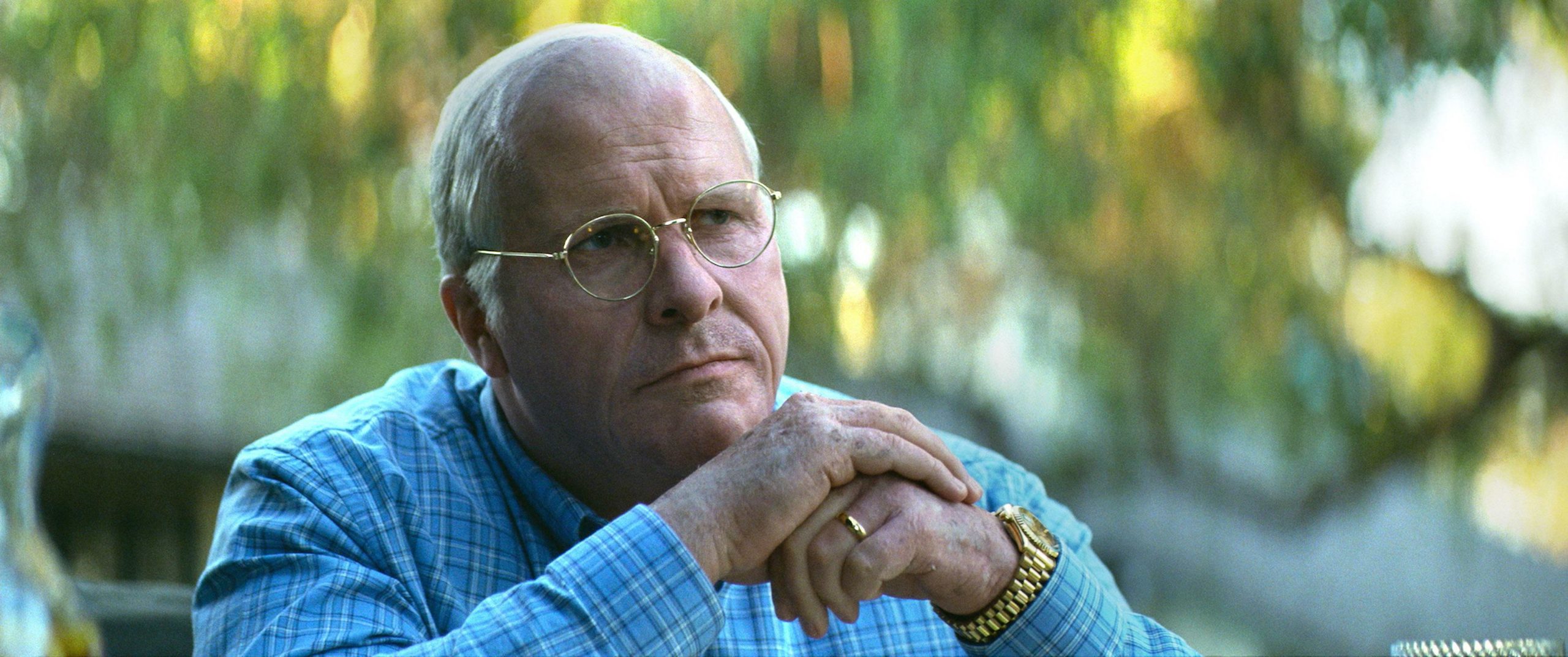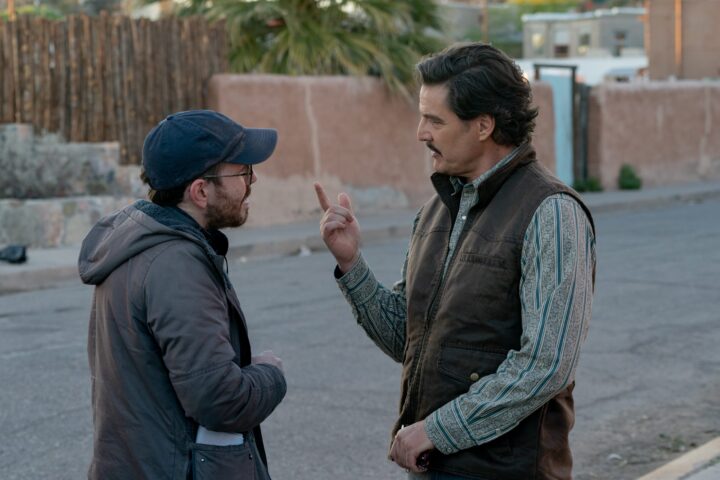Adam McKay’s Vice races across several decades of recent American political history to contextualize how we have arrived at the disaster in which we are currently mired. It’s a movie that tells you upfront that its notoriously private subject—Dick Cheney—is all but impenetrable, but as such McKay and company have filled the blanks in this freewheeling, partisan take-down cloaked in a tongue-in-cheek character study. It’s a movie that graduates McKay to incisive political movie pundit and while not quite the order of Oliver Stone, it seems astonishing given the times that no one else today is doing this, so fair play to McKay.
It might be tempting to write Vice off as a self-satisfied, liberal wet dream treatment of an unchecked Republican free-for-all, which it mostly is. Early in the picture, a young Cheney (Christian Bale) asks boss Donald Rumsfeld (Steve Carrell), “What do we stand for?” and is met with a laugh. That’s the tone of the entire picture.
Early Nebraska-set stretches of the picture chronicle how teenaged Cheney went from aimless ne’er do well—he was expelled twice from Yale and arrested for drunk driving—to committed husband and politician. As the film tells it, this came mostly at the ultimatum of wife Lynne (terrific Amy Adams). An early, scorching confrontation finds Lynne wondering if she’s made the wrong choice of husband, and her ultimatum is all the fuel needed for Cheney to do everything that follows.
Cheney cleans up his act and gets an entry level job as special assistant to Rumsfeld, then director of the Office of Economic Opportunity in the Nixon administration, and, the rest became American history. With a brisk pace, economical editing and smart ensemble led by a whip smart Bale, Vice is at times so entertaining—it even includes an uproarious, midpoint fake conclusion—you might forget just what’s coming.
McKay really hits his stride in the picture’s second half when George W. Bush (Sam Rockwell), presented here as a loose-cannon embarrassment to his family, entices Cheney—who initially resists—to become his running mate. While Lynne disagrees that her husband, out of politics and now the CEO of Halliburton, should serve in a powerless role, Cheney manipulates Bush to redefine the VP role to serve his personal agendas, which of course included never-before-granted VP policy authority. This scene, over a sloppy, backyard fried chicken lunch, would be a satirical zinger in its broadness if it all weren’t true, and for us, recognizable.
One of the most fascinating elements of Vice is the Cheney’s marriage, and in one remarkable moment they descend together upon a D.C. soiree, crowds parting for them, a pair of high rolling power brokers worshipped and feared by the whole of the political establishment. Adams, a force here, establishes Lynne as a Lady Macbeth at home and on the campaign trail, where she subs for Dick when he’s hospitalized for his ongoing, weakened heart.
Bush’s ineptitude allows Cheney to establish himself as the most powerful player in global politics and in the picture’s second half 9/11 war room strategizing, WMDs and the manipulation of the American public to pin the blame on Iraq. The reason, of course, is made clear—Halliburton’s profits at the expense of American lives.
Down the line the cast is excellent, notably Adams and Rockwell, whose unlike Bale doesn’t seem to be doing an uncanny impersonation but more a riff on Bushisms, nailing the voice and good old boys club persona. Carrell is typically fine as sometimes in the tent, sometimes out Rumsfeld and Tyler Perry, when he appears as Colin Powell, gets a big laugh.
McKay also takes time to deconstruct the family dynamics behind daughter Mary’s coming out, a development that is never presented as a political inconvenience for Cheney and a topic that is off limits between he and Bush. In a surprising scene, he informs his boss that he will have no part of any anti-gay marriage platform.
Vice is cleverly written, well shot courtesy of Greig Fraser and wholly believable in the actors’ physical incarnations. Bale’s disappearing act here is fascinating, yet the character withholds and is, throughout, calibrated with a pro poker face. It’s uncanny, accomplished, Machiavellian cool, but by Cheney’s nature an arc is impossible.
McKay, an assured filmmaker who’s graduated from broad slapstick commercial comedies, to, what feels at times, equally broad political and social comedies, does an undeniably effective job illustrating the closed-door government machinations of the Bush cabinet, but to what end? There is no question Vice is eye opening if, at times, if only for showing us what we may already know. Or maybe to a finer point, reinforcing what we already feel: that Washington power grabs have left our government in virtual ruin and Bush, Cheney and company—and the normalizing of what went down during their administration—paved the way for today’s Trump administration debacle.
Picture ends on an unnecessary and artificial address directly to us, Cheney breaking the fourth wall to rationalize his Machiavellian reshaping of history. What the movie says isn’t new but is nonetheless powerful—that we’ve largely gotten what we deserve because we’ve elected charlatans we allow to lie to us in service of their own interests, and that Cheney’s self-serving agenda and power grab was but a warm-up for the shameful state of today’s administration.
3 1/2 stars.




Lee,
Will you be back at PPB. in Wheaton? We really enjoyed your reviews and were so disappointed when Dec. was canceled! I had touted your reviews to many others.
Hope so!!
Thanks,
Judi St Clair
Hi Judith- I was also disappointed! Why don’t we keep in touch? Please email me at [email protected] and we can keep connected on all things movies and any upcoming events!